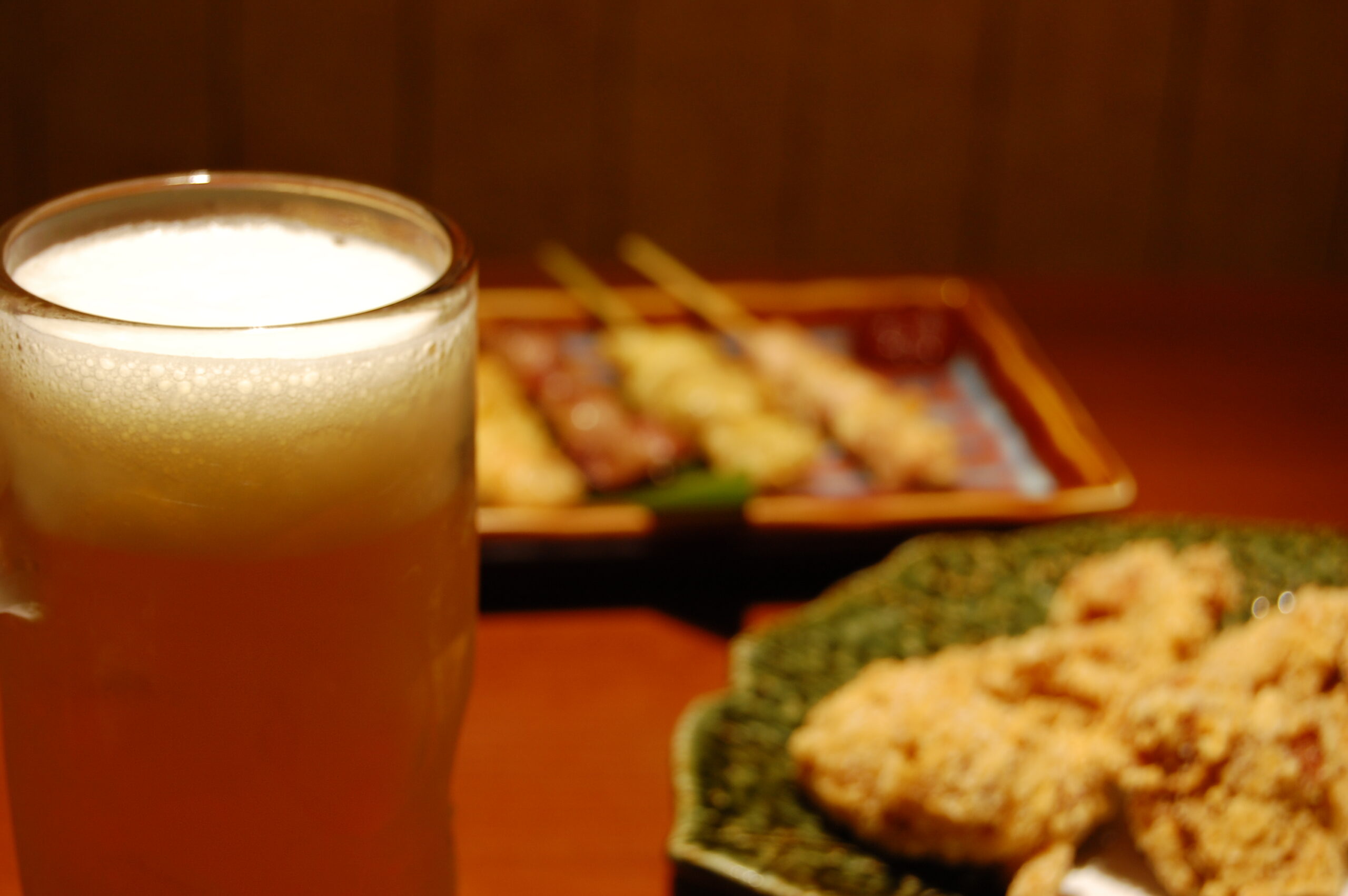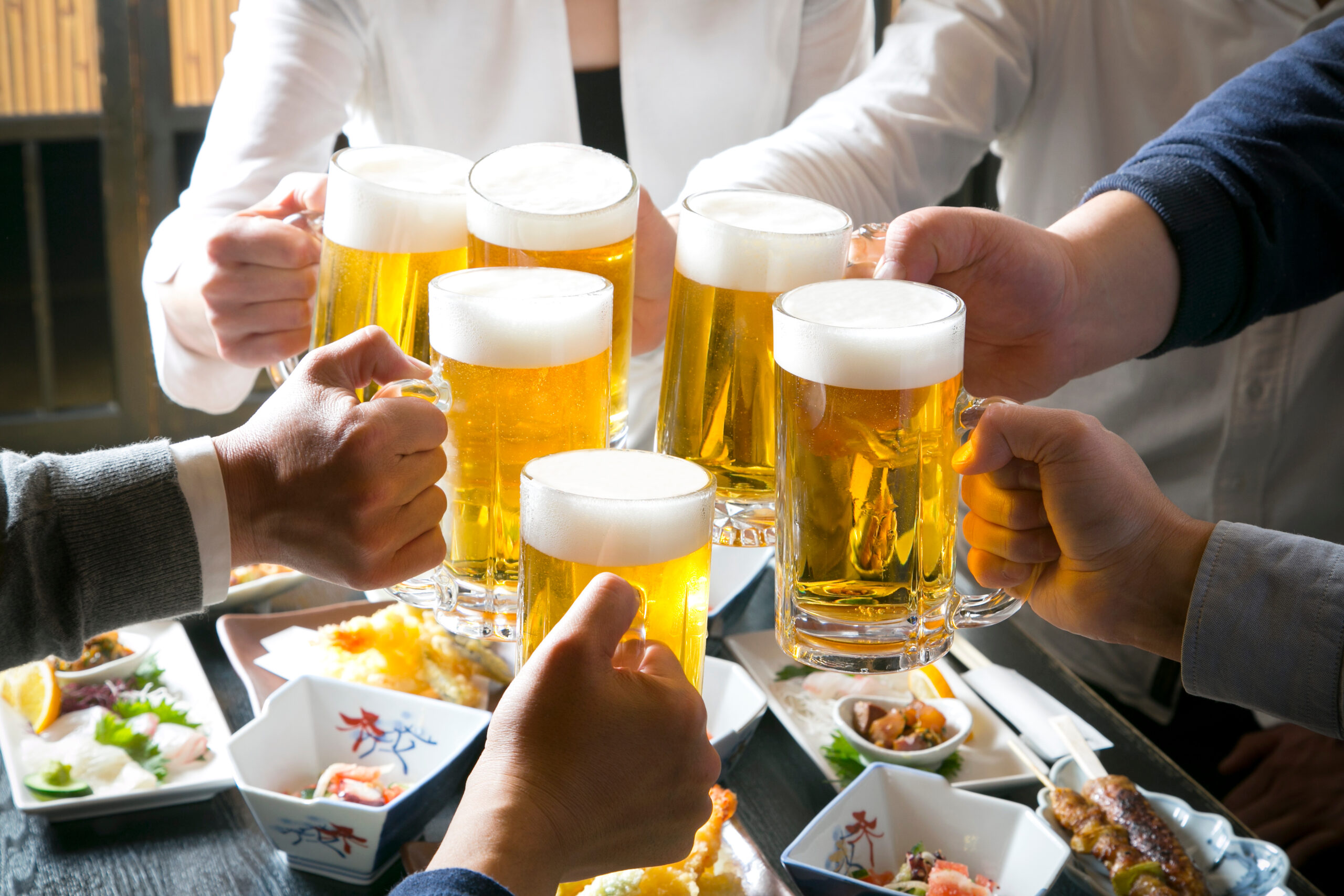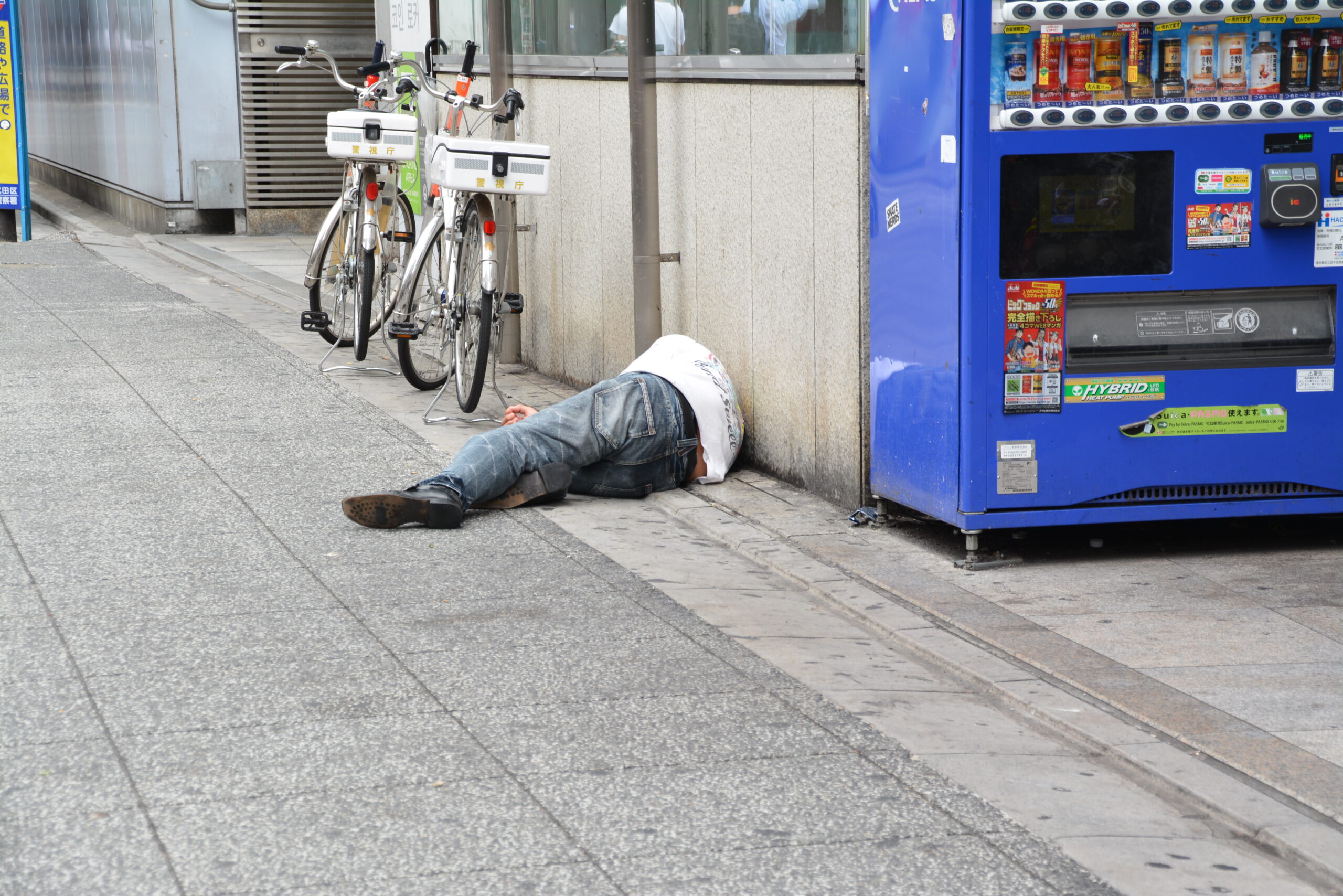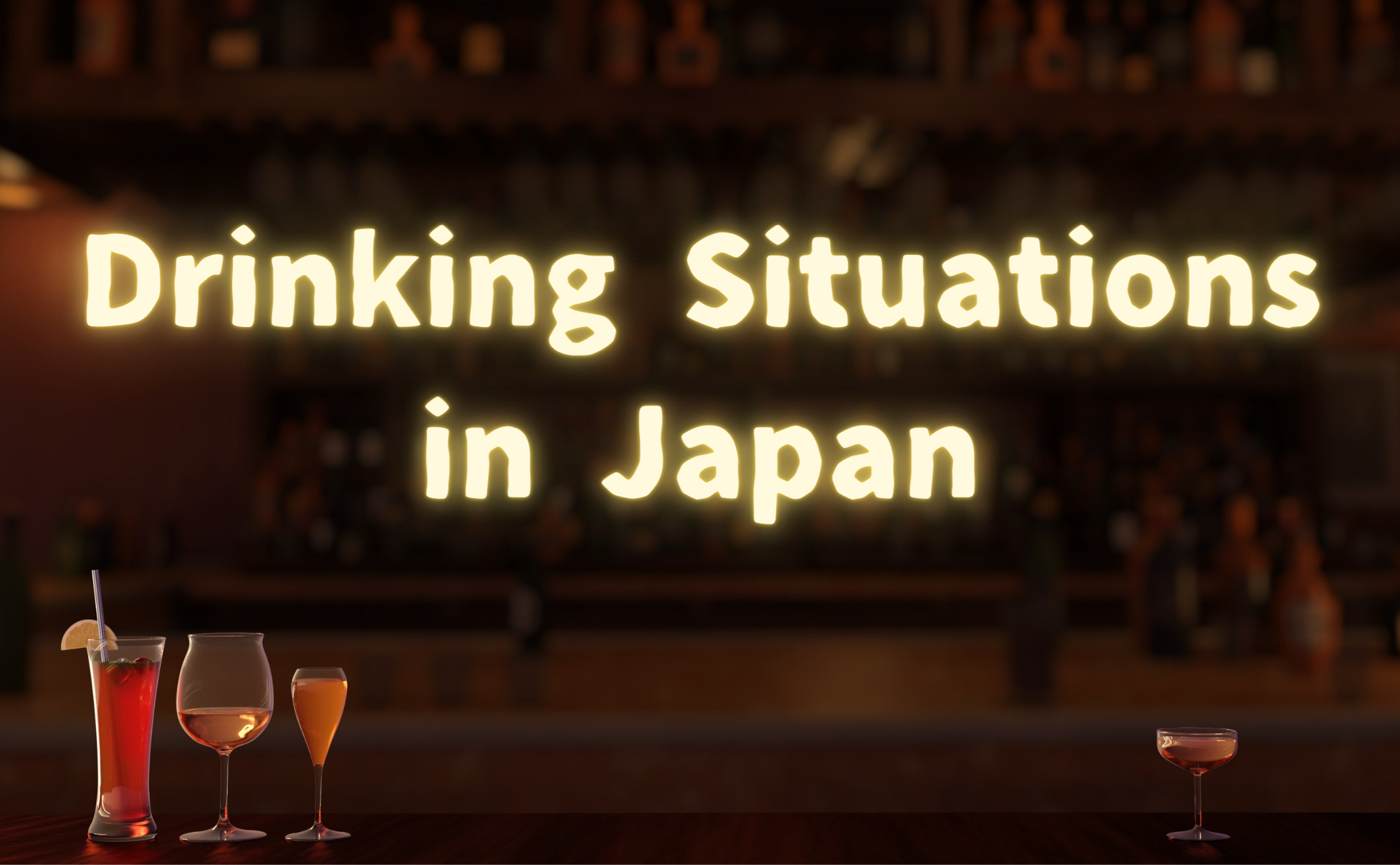Japan is said to be a “drinking paradise.” Japan’s unique drinking background has given rise to the “Izakaya” culture.
One of the reasons for this is that the world is too tolerant of alcohol. Even though I was born and raised in such a culture, I sometimes get really fed up with the drinking situation in Japan. By the way, I cannot drink alcohol for physical reasons. Regardless of whether you drink or not, let’s take a look at both the good and bad aspects of the drinking situation in Japan to avoid having a bad experience when you come to Japan.
Izakaya Culture
In Japan, in addition to regular restaurants, there is a type of restaurant called “izakaya” that is designed for enjoying food along with alcohol. Like bars and pubs, they include not only drinking but also eating. There, food prepared to match the alcohol is served. One of the most typical dishes is yakitori.
There are a variety of restaurants, from low-priced izakaya chains that sell inexpensive food to restaurants that offer authentic cuisine. You can choose the restaurant that best suits your mood.

Many izakaya have an all-you-can-drink policy. For a certain amount of money (usually around 1,500 yen), the more you drink, the more you save, although there is a time limit. In other words, be aware that the amount of alcohol consumed tends to be excessive.
Drinking Party

When one is old enough to drink (over 20 in Japan) and belongs to a group of some kind, such as a workplace or a university student’s club, a “drinking party” is sure to follow. Drinking parties are held to welcome or see off someone, or to mark a milestone such as the end of a semester. The main purpose is deepening team interaction over drinks and food. Although you are not forced to attend, there are times when you cannot refuse. For example, if you are the only one not attending a drinking party at work, you may not be able to refuse. For example, if you are the only one who does not attend a drinking party at work, you may feel alienated.
At such drinking parties, a flat membership fee is set regardless of whether you drink or not. Those who do not drink are often in the minority, so they are expected to match those who do drink.
Alcohol that is too familiar
In Japan, alcoholic beverages are very inexpensive. Of course, depending on the type and alcohol content, you can buy alcoholic beverages for the same price as a cola. Moreover, alcoholic beverages are sold in supermarkets and 24-hour convenience stores. If you turn on the TV, you will frequently see commercials for alcoholic beverages featuring popular idols and actors. Alcoholic beverages are all too familiar.
Drinking Alcohol in Public Places
In Japan, drinking is allowed in public places. For example, in parks, on the street, and on trains.
Buying a can of beer at a convenience store and drinking in a park or on a bullet train at night is a uniquely Japanese experience.
However, if you drink in parks or on the street during the daytime, you should indeed be prepared to be looked at with white eyes. It is best not to drink on commuter trains.
He was drunk, so what could he do?

The overly tolerant attitude toward drinking is also reflected in the way drunken people are perceived. Drunken people lying on the street or vomiting can frequently be seen at night in downtown Tokyo or at train stations. In other words, people are tolerated to lie down and occupy or defile public spaces because they are drunk.
Drunks sleeping on the streets are not limited to special people. You would be surprised to see middle-class businessmen who wear suits and take the train to work lying on the street. Even if these people are sleeping around drunk, they are not in much danger. This situation can be said to be the result of Japan’s high level of public safety. However, the same is not true for women.
As long as Japanese people themselves consider this situation as an everyday occurrence, they will not notice the anomaly.

